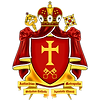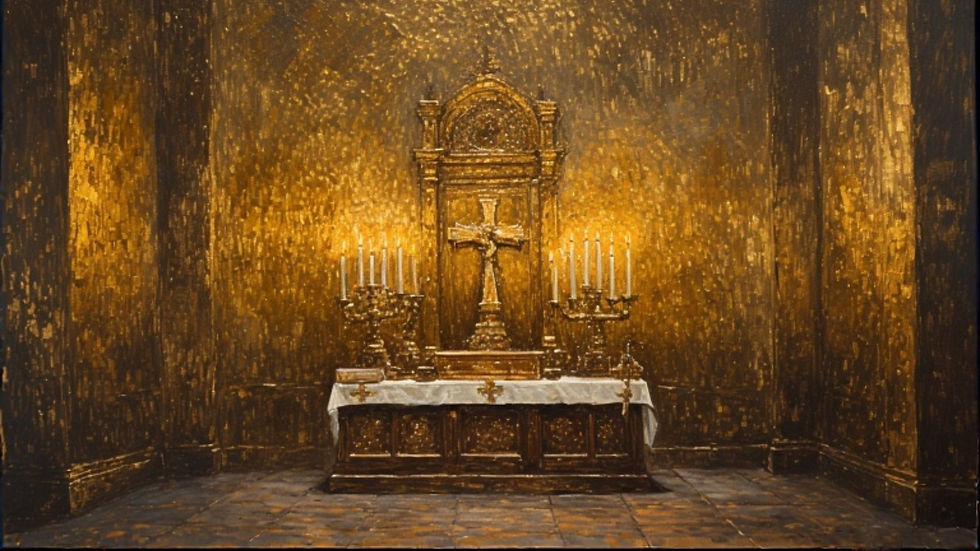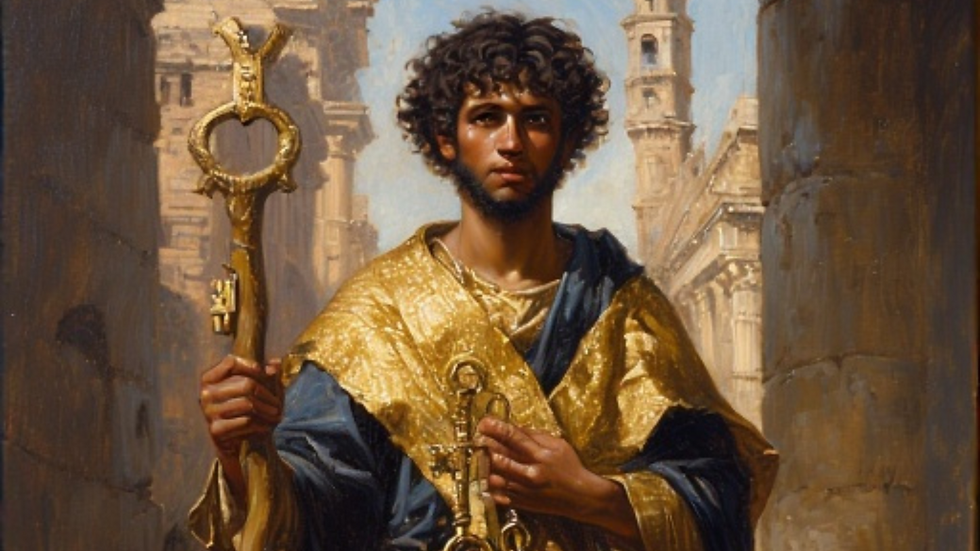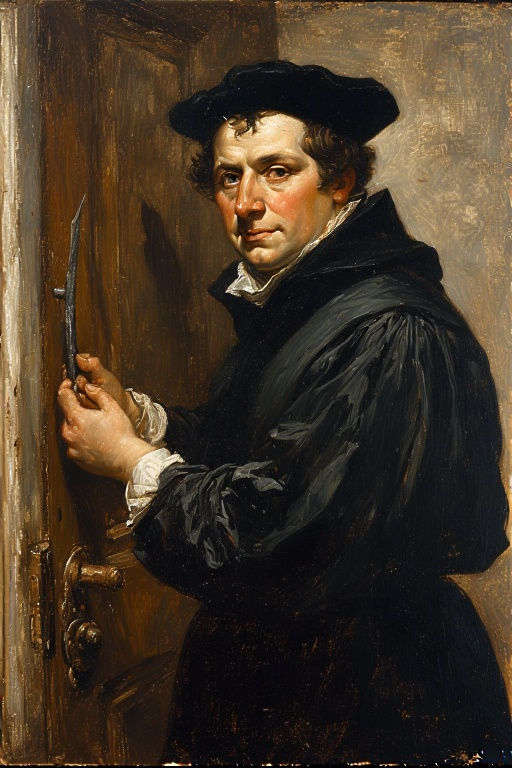The term "Catholic" and its faulty attribution to Evil
- Feb 16, 2022
- 4 min read
Updated: Jun 13, 2025
The following is a commentary on anti-catholicism from Protestant Christians (those calling themselves Anglicans, Baptists, Pentecostals, non or interdenominationals, 'simply Christians', etc.) by Ecumenical Metropolitan of Antioch, Auriel Jones referring to this term as all-encompassing to evil and vain tradition. This commentary rebukes the ignorance among Protestantism due to its weakness in the fulfillment of the faith being so historically removed from the ancient churches, and at times, intellectually removed.
There has been a deep misconception which continues to permeate the minds of various Protestant Christians—those who stem from the likes of German Reformer Martin Luther, the namesake of Lutheranism; the French Reformer John Calvin, namesake of Calvinism; English Reformer John Smyth, the founding father of the Baptist churches; and others, respectively—pertaining to the term, "Catholic".
This misconception is that the term "Catholic" is evil, and the Pope of Rome is the agent of Heōsphoros—the dawn-bringer, that rebellious serpent himself more often known among Christians as a whole by the identifier, Satan. This became commonly associated with darkness out of a rejection of the Catholic Church in Rome's errors which have been highlighted and scapegoated to libelous intent even in these very days, despite this attribution being formulated in apparent good faith against the sale of indulgences and corruption among the clergy.
As such, the emotionalism imbued in the minds and hearts of the Reformers could only see the Vatican-Holy See and Diocese of Rome as the throne of Satan in their time and that the Christ would be soon coming by the next decade, made evermore worse with the Catholic Church in Rome's overbearing influence in the political sphere and their sanctioning of—at times—severe persecution among the Protestant Reformers. Consequently, this misunderstanding of the terminology has been carried along throughout much of Protestant Christianity against Catholic Christendom in retaliation, even in these days where the prayer of the Christ that His Church becomes one has been labored toward via various forms of ecumenism.
Seeking to forgo identifying the term "Catholic" as associated with evil among Protestantism, a historic approach must be analyzed of the term. This historic approach is that, despite Rome often being identified with the term, it is not solely exclusive to Roman Catholicism and is not the Synagogue of Satan. The historic approach also includes the notion that as such, the term "Catholic" has been used since the time of the Twelve and their apostleship as denoted in Holy Scripture.
First, the term is not exclusive to Roman Catholicism because arguably declaring, the Catholic Church in Rome likewise its sister, the Eastern Orthodox Church or Orthodox Catholic Church, existed in their current forms after the East-West Schism of 1054 where the state-recognized imperial catholic faith schismed over papal primacy and jurisdictional authority, theological understandings, etc; these descendants of that church recognized by the Roman Empire—and not created, as neither Constantine nor Theodosius I created Christianity, neither did they compile the Holy Scriptures as so many have been wrongfully educated on—all adhered to a diverse one, holy, catholic and apostolic faith; they believed in and proclaimed the Nicene Creed, they partook in the sacraments, and they upheld that where there is Jesus, there is the faith according to the whole (the term "Catholic").
Next, Rome is not the Synagogue of Satan due to her historic errors which continue to occur even in these days; by that logic, Israel could be deemed the same due to their faulty leadership in the Old Testament, nullifying the pretenses of Judaism and Christianity.
Then, there is an understanding that as it is not exclusive to the Catholic Church in Rome which has been often characterized as the sole arbiter of the Catholicity of the Church, then historically underpinning the unity of the early Great Church manifested in that faith recognized by Theodosius I in 380, the term "Catholic" has been used since the beginning of the Church.
This has been made evident through Acts 9:31a which states according to the Great and Holy Bible, "Meanwhile the church throughout Judea, Galilee, and Samaria had peace and was built up." Exegeting the text in the original translation from the Greek tongue, the term "throughout [all]" was written as "kath’holēs" which is where the term "catholicus" and "catholicos" are derived denoting the term, "Catholic". Now, while arguments have been made against this employment of the early Church using the term "Catholic" as an identifier by stating the Vulgate's lack of the term, the translator of the Vulgate needed not to explain what was unanimously upheld as much as Protestants love not to explain what is unanimously upheld in Christendom through forgoing translations closer to the original languages of Biblical Hebrew and Koine Greek.
In addition to Holy Scripture as accepted among all professing to be Christians, Saint Ignatius of Antioch, who was a disciple of Saint John the Apostle and elected the Bishop of Antioch until his death around 108 to 140, which was established by Saint Peter the Apostle, wrote, "wherever the bishop appears, there let the people be; as wherever Jesus Christ is, there is the catholic Church." Bearing witness to this statement from men such as Ignatius who were literal disciples of the Twelve, it cannot be more evident that the Church has always referred to herself as "Catholic" and that it does not denote the evils of humanity.




Comments